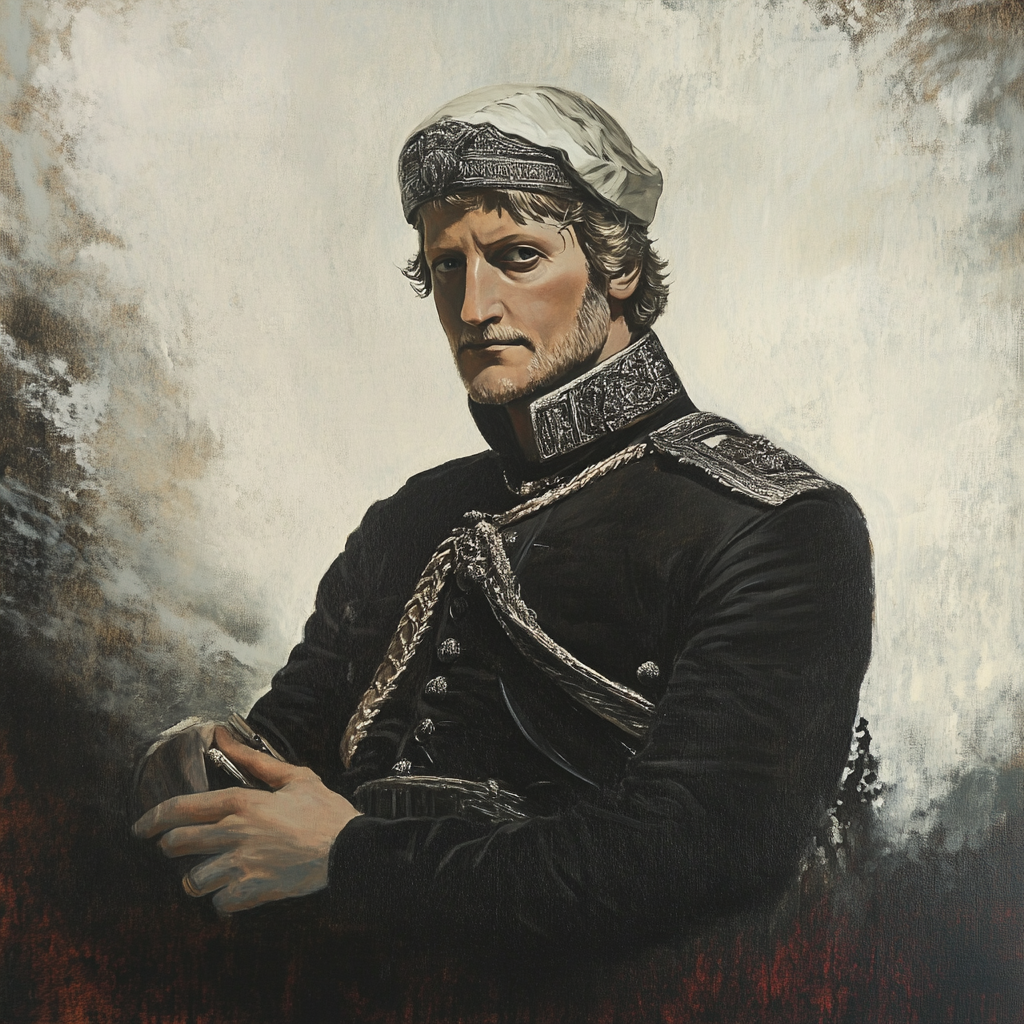Thomas Gordon, known in Greek as Thomas Gordas, was one of the first European Philhellenes to arrive in revolutionary Greece in 1821. A Scottish colonel, landowner, and traveler, Gordon played an active role in the Greek War of Independence.
He fought in battles and even purchased a house in Argos, which today belongs to the French Archaeological School. It was there that he began documenting the events of the Greek Revolution. His first account was published in English in 1832. In 1904, renowned Greek author Alexandros Papadiamantis translated it into Greek — but the translated version wasn't printed or published until 2015!
Gordon’s First Encounters with Greece
Initially serving in the British Army's cavalry, Gordon resigned after inheriting a large fortune. In August 1810, he traveled to Ioannina, where he was hosted by Ali Pasha. He later toured several Greek cities and also ventured into parts of Africa and Asia.
Three years later, he joined the Russian army as a sergeant, serving alongside the Scottish diaspora. In 1815, Gordon returned to Ioannina and then traveled to Bucharest, where he met Demetrios Ypsilantis.
Gordon’s Role in the Greek War of Independence
Gordon was the first English Philhellene to actively participate in the Greek struggle. He financed a ship in Marseille that transported Philhellenes and fighters to Greece. He also took part in the Siege of Tripolitsa.
However, accounts differ on whether he witnessed the massacre that followed the city's fall or relied on the testimonies of others. Historian Finlay claims Gordon returned nine days after the fall, alongside Demetrios Ypsilantis, basing his reports on survivor accounts. Meanwhile, scholars like Gary J. Bass and Benjamin Lieberman believe he was present, whereas William St. Clair writes that he returned slightly later.
Other historians, including the Philhellene Persat, argue that Gordon was away on a mission under Ypsilantis’ command at the time. Aglaia Kasdagli and David Brewer agree, noting that both Gordon and Ypsilantis had left before the massacre, during ongoing negotiations, and could not have foreseen the sudden outbreak of violence.
The Fall of Tripolitsa - Picryl
Outrage over the Tripolitsa Massacre
Deeply disturbed by the massacre at Tripolitsa, Gordon openly condemned the atrocities. When his protests were ignored by the Greeks, he chose to withdraw from active involvement in the Revolution.
In November 1821, Gordon returned to Britain via Zakynthos. The following year, Greece’s provisional government in Hermione invited him to return, but he refused. Gordon was critical of the Peloponnesians, describing them as "common bandits."
Nevertheless, he continued to support the cause from afar. He joined the London Greek Committee, helping send funds and military supplies to Greece, and supported Lord Byron's appointment to the committee.
The "Crown and Anchor" Tavern on London's Strand, where the first meeting of the London Greek Committee was held - Wikipedia)
Beyond Gordon, many Philhellenes played crucial roles in aiding the Greek struggle by offering financial and material support. The London Greek Committee was instrumental, securing two major loans for Greece in 1824 and 1825, totaling over two million pounds. Despite the efforts of Greek envoys, Gordon initially refused to return to Greece.
Gordon’s Return to Greece
In 1826, Gordon was finally persuaded to return. Greek representatives hoped that his presence would promote unity and strengthen military discipline.
When he arrived in Nafplio in May, he found a nation so torn by internal divisions that many had forgotten the true enemy — the Ottomans. Nevertheless, Gordon’s arrival generated enthusiasm, and his intervention was crucial in preventing the collapse of the regular army.
He brought with him £14,000, which he personally managed. He was tasked with collaborating with General Fabvier to organize the regular army and prepare for the arrival of Lord Cochrane. Although he initially declined the army’s leadership, distrusted by the Greek government, he eventually accepted after an intervention by General Makriyannis to Prime Minister Andreas Zaimis.
Gordon took part in the 1827 operations at Kastella, personally funding the troops’ expenses. Although he successfully captured the hill, he failed to advance toward the Acropolis. Disillusioned after Greek forces attacked an Albanian garrison under Greek protection, he resigned his command and restricted himself to administrative duties until his departure for Scotland in July 1827.
The Battle of Kastella - Wikipedia
A Legacy Beyond the Battlefield
Between 1828 and 1831, Gordon oversaw excavations at the Temple of Hera in Argos. He also witnessed the events leading up to the assassination of Governor Ioannis Kapodistrias. In January 1831, Petros Mavromichalis sought refuge on Zakynthos, traveling aboard Gordon’s schooner.
Speaking about Gordon’s History of the Greek Revolution, Alexandros Papadiamantis wrote, "The work is important and I labored over it." The book remains one of the most respected and credible accounts of the 1821 Revolution, offering a detailed and objective narrative without overt personal bias.













